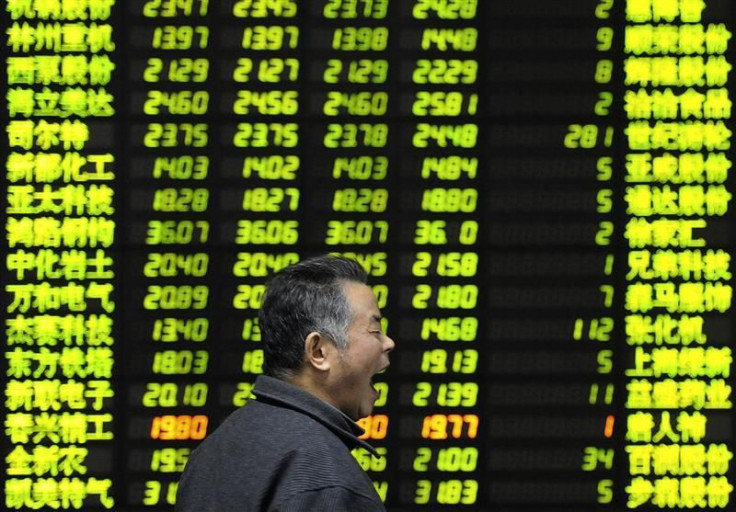Weekly Roundup: Asian Markets Fall On Euro Zone Fears

Most of the Asian markets fell in the week following the revival of the investor concerns about the deepening debt burden faced by the euro zone and worsening global economic growth.
Japan's Nikkei 225 Stock Average fell 1.2 percent and closed at 8566.64 while South Korea's Kospi Index was up 0.3 percent and closed at 1829.16. India's BSE Sensex dropped 1.8 percent and closed at 16839.19.
Hong Kong's Hang Seng Index declined 1.9 percent and closed at 19274.96 and China's Shanghai Composite Index fell 1.8 percent and closed at 2128.76.
Investors continued to worry about the uncertainties in the euro zone economy. Moody's Investors Service said Monday that it was changing its outlook for Germany, the Netherlands and Luxembourg to negative from stable. It cited the increasing risk of Greece leaving the euro currency and the need for more support required for Spain and Italy as reasons for the change in outlook.
Market players felt that a banking sector bailout and an empowerment of the EU's bailout funds could not solve Spain's underlying economic problems. The gross domestic product projection by the Spanish government last week showed that Spain's economy would not register growth before 2014, adding to the concerns about the amount of sovereign funding needed.
Market participants sensed that by approving 100 billion euros ($ 122 billion) of the EU banking aid for Spain only on the condition that the Spanish government accepted full liability for the loans, Germany's lower house of parliament had effectively extinguished hopes of a direct recapitalization of its banking sector.
Worry about Greece was also revived following reports that the International Monetary Fund could cut off any more rescue aid to Greece. The political deadlock in May and June meant that Greece had already fallen well behind the fiscal and structural reform targets that were set in March. This prompted the troika, consisting of the European Commission, the European Central Bank (ECB) and the IMF, to suspend all further loan payments from the second rescue package until Greece demonstrates its compliance with the bail-out terms.
On Friday, markets made some gains as investors welcomed ECB President Mario Draghi's pledge Thursday to do whatever it took to save the euro. The yield on the 10-year government bonds in both Spain and Italy plunged after Draghi had hinted that the Bank might restart sovereign bond purchases under its Securities Market Program, which had been dormant for around four months.
Meanwhile, China's manufacturing activity rose in July compared to that in June, according to the preliminary HSBC Flash Purchasing Managers Index (PMI) released Tuesday. The preliminary reading of the PMI, a measure of the nation-wide manufacturing activity, climbed to 49.5 in July compared to 48.2 in June. However, this report could not revive the market confidence.
Major Losers: Shares of Hutchison Whampoa fell 3.8 percent. Shares of HSBC Holdings Plc dropped 4.1 percent and those of Canon Inc plunged 12 percent.
Week Ahead: Markets will be expecting the announcements of stimulus measures by central banks around the globe, especially the U.S Federal reserve and the ECB. Investor confidence is expected to be rejuvenated by the hopes on bold measures to tackle the euro zone debt crisis and the faltering U.S. economy.
© Copyright IBTimes 2024. All rights reserved.











